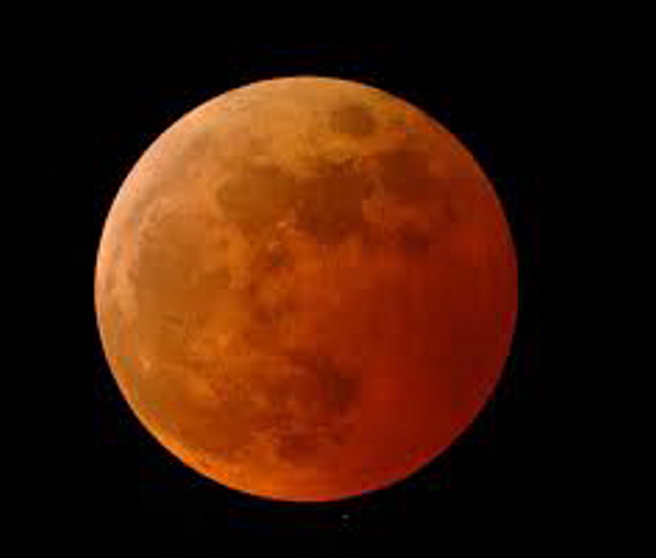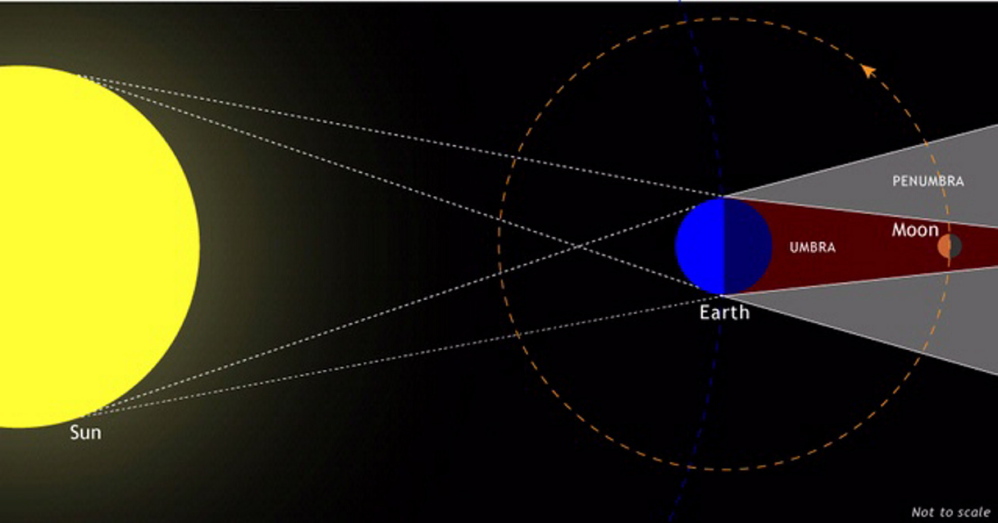The way Edward Gleason looks at it, staying up all night for a total lunar eclipse is a vital community service.
But that may be because Gleason is an astronomer, he lives by standard time while the rest of use daylight savings time, and he runs Southworth Planetarium at the University of Southern Maine in Portland.
“It’s just part of serving the community,” said Gleason. “The last time we did this we only got one person, but that’s OK.”
What the planetarium did, and is doing again, is basically pulling an all-nighter to help folks get a good glimpse of a total lunar eclipse.
The total lunar eclipse event will be free and take place between 1:20 a.m. and 4:24 a.m. Tuesday. At 1:30 a.m. there will be a 15-minute presentation in the planetarium on what a total lunar eclipse is, why it happens, how often and what to look for in the sky.
Then at about 2 a.m. everyone goes outside to watch the beginning of the celestial event, known as the “umbral” eclipse. That’s when the moon can be seen passing through the earth’s shadow.
Then at 3:07 a.m. the total eclipse will start, when the moon is completely covered by the earth’s shadow.
It’ll take until 4:24 a.m., according to Gleason, for the eclipse to be over.
But will those of us who only pay attention to stars at Oscar time be able to see the difference in the skies?
“The moon might look very dark, but it might look rather red, and what causes that is all the sunsets and sunrises on earth being reflected,” said Gleason. “Sometimes the moon (during an eclipse) can be coppery-orange. It can be brilliant.”
There might be some telescopes available outside for viewing the eclipse, but it’s certainly visible to the naked eye. There will be lawn chairs.
Gleason originally sent out publicity for this event saying everything was an hour earlier, because he uses standard time all the time while most of the world uses the convenience known as daylight savings time.
Standard time, in Gleason’s words, is the “system the gods prefer.”
The event is a good chance to see something that doesn’t happen very often. The next one will be in October.
But the main attraction is a chance to be with folks who have taken the time to stay up all night and watch and talk about and think about the wonder of our universe.
And in today’s world, if someone makes you take a minute to think about the immensity and magnificence of the universe, that is a public service.
Staff Writer Ray Routhier can be contacted at 791-6454 or at:
rrouthier@pressherald.com
Twitter: RayRouthier
Send questions/comments to the editors.





Success. Please wait for the page to reload. If the page does not reload within 5 seconds, please refresh the page.
Enter your email and password to access comments.
Hi, to comment on stories you must . This profile is in addition to your subscription and website login.
Already have a commenting profile? .
Invalid username/password.
Please check your email to confirm and complete your registration.
Only subscribers are eligible to post comments. Please subscribe or login first for digital access. Here’s why.
Use the form below to reset your password. When you've submitted your account email, we will send an email with a reset code.